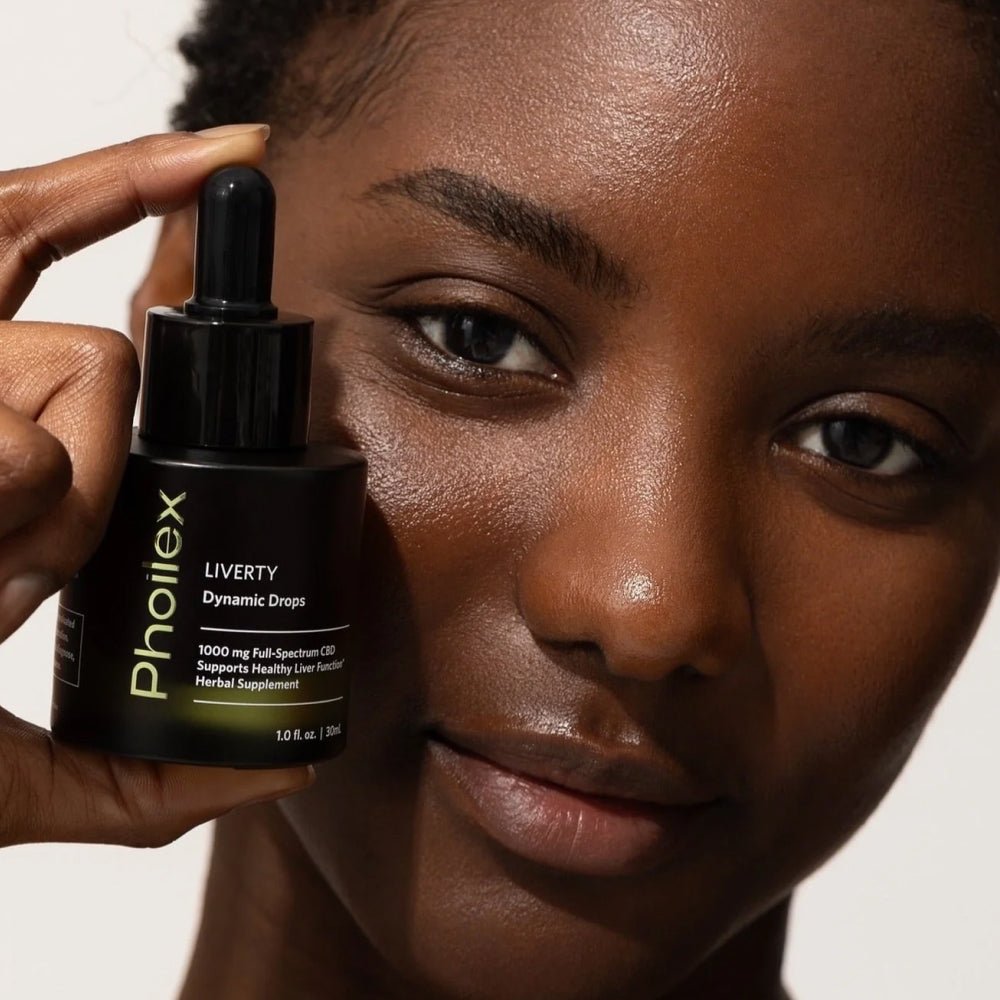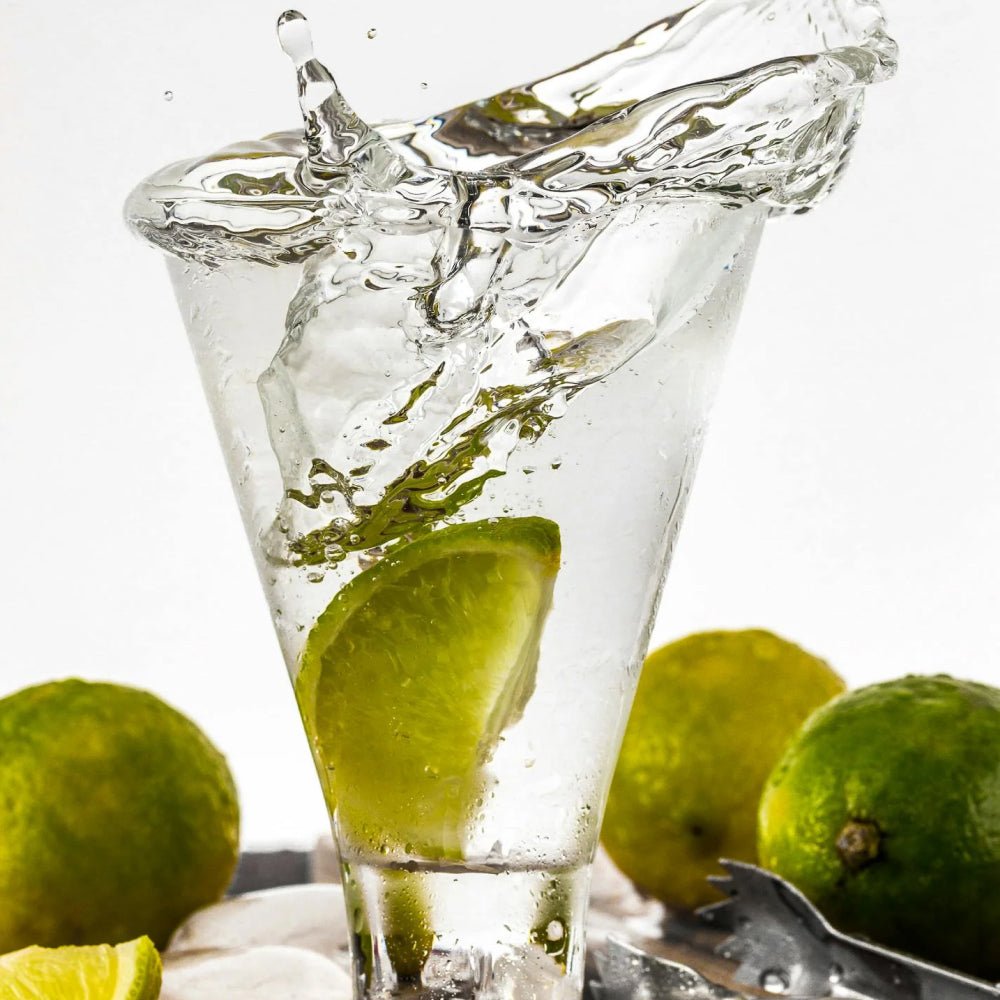Normally, the human body has a capacity of approximately 70% water. Without moisture, your eczema-prone skin will appear with an abundance of flakiness, cracks, and itchy patches. You wonder if those issues could exacerbate eczema symptoms. Let’s discuss the question, “Can dehydration cause eczema?" and how it affects the skin. In this blog, we can offer the right solution to prevent dehydration with Phoilex.
Can Dehydration Cause Eczema?
In short, dehydration can exacerbate eczema symptoms, making them worse.
Can dehydration cause eczema? Even though you might not notice the effects of dehydration right away, it can gradually damage your skin's natural barrier and make eczema worse. Why is that? Dehydration can be seen in many forms; however, eczema patients can notice the skin becoming more prone to sensitivity and itching. This occurs as a warning sign that your skin barrier is weakening. A weakened barrier also allows for Transepidermal Water Loss (TEWL).
Dehydration can also accelerate the loss of moisture in the skin and increase trans-epidermal water loss (TEWL), which disrupts this barrier function. In this case, the skin craves more water than ever, which causes your skin to become dry and compromises its ability to act as a protective barrier. Key factors involved in the relationship between dehydration and eczema include:
- Dry Skin: Dryness is a major trigger for eczema. It causes the skin to lose its ability to retain moisture, negatively affecting the condition.
- Weakened Skin Barrier: Without hydration, your skin could lose its defense mechanism, making it less effective at retaining moisture and fighting off irritants. If your skin barrier is damaged, it could lead to skin problems like dry, itchy, or flaky skin.
- Increased inflammation: Lack of moisture can further trigger inflammation in the body, contributing to eczema’s hallmark redness and itching.
After exploring the potential link between dehydration and eczema, we will continue deeper into xerotic eczema, a type often associated with dry skin.
Xerotic Eczema: A Skin Condition Caused by Dehydration
Dehydration is known to cause a specific type of eczema called “xerotic eczema” or “winter itch”.
What is Xerotic Eczema?
Xerotic eczema, also known as dry skin eczema, occurs in older adults and during the winter months when the air is dry. Symptoms of xerotic eczema include:
- Severe skin dryness
- Cracked skin
- Intense itchiness
- Red, inflamed skin
- Flaky or scaly patches
These symptoms can be aggravated during colder months when humidity levels drop. Don't ignore untreated eczema; it can develop into open wounds or secondary skin infections.
Can Drinking Water Help Alleviate Eczema?
Drinking enough water helps hydrate your skin from within, which can effectively improve eczema.
How much water should you drink to reduce eczema?
While there’s no magic number for everyone, aiming for at least 2 liters day can help keep you well-hydrated. It's important to drink enough water to maintain good health. It helps with digestion, regulates body temperature, and supports various bodily functions.
Keep in mind that hydration comes from various sources. Although drinking water is important, your body also gets moisture from fresh fruits, vegetables, and other drinks in your diet. This holistic approach helps ensure your cells, including skin cells, stay properly hydrated for optimal function.
Xerotic Eczema Treatment
While drinking water is important for overall health, there are more direct and effective ways to hydrate eczema-prone skin. Eczema is often caused by a damaged skin barrier, which leads to excessive moisture loss.
You can count on your hydrating creams and ointments. Applying them directly to the skin can help lock in moisture and improve your skin barrier function. Ceramides are crucial in rebuilding your damaged skin barrier, so look for products that contain them. You can use targeted skincare like Phoilex Active ReLeaf Spot Gel to moisturize and soothe the skin effectively.
Phoilex Active ReLeaf Spot Gel: This gel soothes inflamed skin, reduces redness, and provides fast relief from eczema flare-ups. The spot gel serum deeply hydrates the skin and creates a protective barrier. Use a small amount on the affected areas and gently massage it in. Its lightweight formula absorbs quickly, making it ideal for targeted eczema treatment.
Another way to avoid too much sun exposure is to use sunscreen with SPF 30+ and wear protective clothing. This helps prevent dehydration and UV damage. It’s also important to steer clear of soaps and body washes with sulfates or harsh surfactants, like sodium lauryl sulfate, as these can irritate and dry out your skin. Instead, look for fragrance-free products containing "glucosides." These are a type of mild, non-ionic surfactant, such as glucosides, which are gentle ingredients used in cleansers and shampoos. Unlike anionic surfactants (like those in most soaps), non-ionic surfactants don’t carry an electric charge, which makes them less irritating and better suited for sensitive or eczema-prone skin.
Rehydrate Your Skin and Soothe Eczema with Phoilex
After reading this blog, we hope you've gained some insight on whether dehydration can cause eczema. Dehydration itself may not trigger eczema, but it can significantly worsen existing symptoms, especially those with dry skin. Combating eczema requires a multi-faceted approach. While hydration helps, you’ll need skincare products designed to tackle dry, inflamed skin. Phoilex offers solutions that not only moisturize but also strengthen the skin barrier, reducing the likelihood of flare-ups. Try Phoilex products to give your skin the extra care it deserves.
FAQs
Q: Can dehydration directly cause eczema to develop?
A: Dehydration doesn't directly cause eczema, but it can significantly exacerbate existing eczema symptoms and make flare-ups worse. When your body lacks adequate water, your skin's natural barrier weakens, leading to increased dryness, itching, and inflammation that are characteristic of eczema. This creates a cycle where dehydrated skin becomes more vulnerable to irritants and allergens that trigger eczema symptoms.
Q: What is xerotic eczema and how is it related to dehydration?
A: Xerotic eczema is a specific type of eczema that is directly associated with extremely dry, dehydrated skin. This condition occurs when the skin loses its ability to retain moisture, resulting in flaky, cracked, and itchy patches. Dehydration accelerates the development of xerotic eczema by compromising the skin's protective barrier and increasing transepidermal water loss (TEWL).
Q: How does dehydration affect the skin barrier in people with eczema?
A: Dehydration weakens the skin's natural protective barrier, making it less effective at retaining moisture and defending against external irritants. When the barrier is compromised, it allows for increased transepidermal water loss (TEWL), which means moisture evaporates from the skin more rapidly. This weakened barrier also makes eczema-prone skin more sensitive and susceptible to inflammation, redness, and itching.
Q: What are the warning signs that dehydration is worsening my eczema?
A: The primary warning signs include increased skin sensitivity, heightened itching, and the appearance of more flaky or cracked patches on your skin. You may also notice that your skin feels tighter, looks duller, and that eczema flare-ups occur more frequently or with greater intensity. These symptoms indicate that your skin barrier is weakening and needs immediate hydration support.
Q: How much water should I drink daily to help manage eczema symptoms?
A: While individual needs vary based on body weight, activity level, and climate, most adults should aim for approximately 8-10 glasses of water per day to maintain proper hydration. For people with eczema, staying consistently hydrated helps support the skin's moisture barrier and can reduce the frequency and severity of flare-ups. Remember that hydration works best when combined with topical moisturizers and proper skincare routines.
Q: Besides drinking water, what other ways can I prevent dehydration-related eczema symptoms?
A: In addition to adequate water intake, you should use gentle, fragrance-free moisturizers immediately after bathing to lock in moisture and strengthen your skin barrier. Avoid hot showers which can strip natural oils, use a humidifier in dry environments, and incorporate hydrating ingredients like hyaluronic acid and ceramides into your skincare routine. Products specifically formulated for eczema-prone skin, such as those from Phoilex, can provide targeted hydration and barrier support.
References:
- Perkins, S. (2023, November 15). Dehydrated skin: Symptoms, causes, treatment, and more. Medical News Today. https://www.medicalnewstoday.com/articles/dehydrated-skin#symptoms
- Ballard, A. B. (2024, February 1). Does the amount of water you drink affect your eczema? National Eczema Association. https://nationaleczema.org/blog/drinking-water/#:~:text=If skin gets too dry,lead to an eczema flare
- Ltd, B. S. (2020, March 3). Can drinking more water help reduce eczema? Balmonds. https://balmonds.co.uk/blogs/blog/can-drinking-more-water-help-reduce-eczema?shpxid=14e54179-59c9-4e8c-8782-6f34ec556d7d
- Douladiris, N., Vakirlis, E., & Vassilopoulou, E. (2023, January 31). Atopic dermatitis and water: Is there an optimum water intake level for improving atopic skin? Children (Basel, Switzerland). https://pmc.ncbi.nlm.nih.gov/articles/PMC9954916/#sec4-children-10-00273
- Burtka, A. T., & WebMD Editorial Contributor. (2024, August 28). Xerotic eczema: What it is, what causes it, and how it’s treated. WebMD. https://www.webmd.com/skin-problems-and-treatments/eczema/what-is-xerotic-eczema
- Xie, Q., Zhang, S., Ma, H., Shao, W., Gong, X., & Hong, Z. (2018, November 12). A novel thin-film nanocomposite nanofiltration membrane by incorporating 3D hyperbranched polymer functionalized 2D graphene oxide. Polymers. https://pmc.ncbi.nlm.nih.gov/articles/PMC6401733/
- Feldman, S. (2023, May 2). 4 signs your skin is dehydrated & how to treat it. Revea. https://www.myrevea.com/blog/4-signs-your-skin-is-dehydrated-and-how-to-treat-it/
Read more

Eczema is a chronic skin condition that leaves the skin dry, red, and itchy. It can lead to long-term inflammation and affect the skin’s protective function. The basic treatment, as mentioned in th...

When eczema occurs, “the immune system stays unnecessarily triggered, and it can cause inflammatory conditions," says Angela Ballard, RN, a registered nurse with over 25 years of clinical experie...
